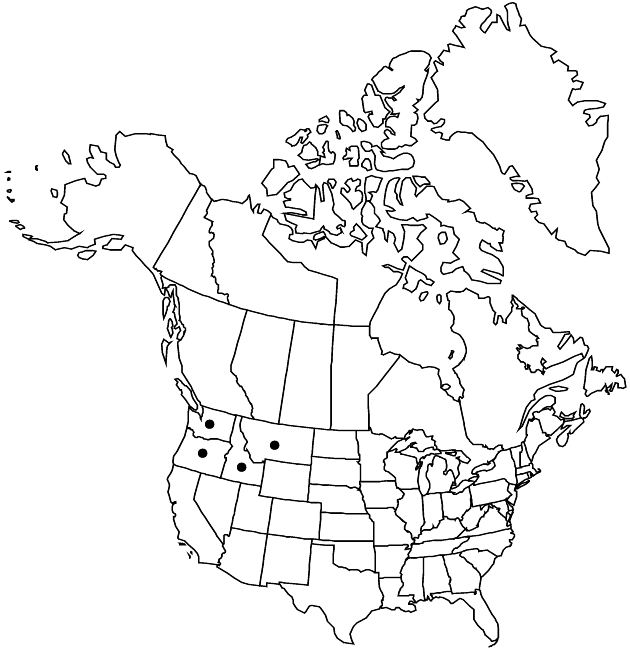Difference between revisions of "Artemisia rigida"
Proc. Amer. Acad. Arts 19: 49. 1883.
imported>Volume Importer |
imported>Volume Importer |
||
| Line 61: | Line 61: | ||
|publication year=1883 | |publication year=1883 | ||
|special status=Endemic | |special status=Endemic | ||
| − | |source xml=https:// | + | |source xml=https://bitbucket.org/aafc-mbb/fna-data-curation/src/2e0870ddd59836b60bcf96646a41e87ea5a5943a/coarse_grained_fna_xml/V19-20-21/V19_873.xml |
|tribe=Asteraceae tribe Anthemideae | |tribe=Asteraceae tribe Anthemideae | ||
|genus=Artemisia | |genus=Artemisia | ||
Latest revision as of 19:57, 5 November 2020
Shrubs, 20–40 cm (branches widely spreading), mildly aromatic; root-sprouting (caudices stout). Stems gray (coarse, brittle), hairy (bark gray, exfoliating). Leaves deciduous, silver-gray (rigid); blades broadly spatulate, 1.5–4 × 0.5–0.7 cm (bases narrow), 3-lobed (lobes 1/2+ blade lengths, ca. 1 mm wide), faces densely hairy. Heads borne singly or (in glomerules) in (densely leafy) spiciform or paniculiform arrays 2–20 × 2 cm. Involucres narrowly campanulate, 4–5 × 2.5–3.5 mm. Phyllaries elliptic (acute to obtuse), densely canescent. Florets 4–8; corollas yellowish red to red, 2–2.8 mm (style branches oblong, truncate, exsert). Cypselae (4–5-ribbed) 1–1.5 mm, glabrous. 2n = 18, 36.
Phenology: Flowering mid summer–early fall.
Habitat: Dry rocky scablands, volcanic plains
Elevation: 1500–1800 m
Distribution

Idaho, Mont., Oreg., Wash.
Discussion
Artemisia rigida is an important successional species following fires because the plants form new shoots from the underground caudices. This characteristic aligns the species with other ‘sprouters’ in the subgenus, namely A. cana, A. tripartita, and A. arbuscula.
Selected References
None.